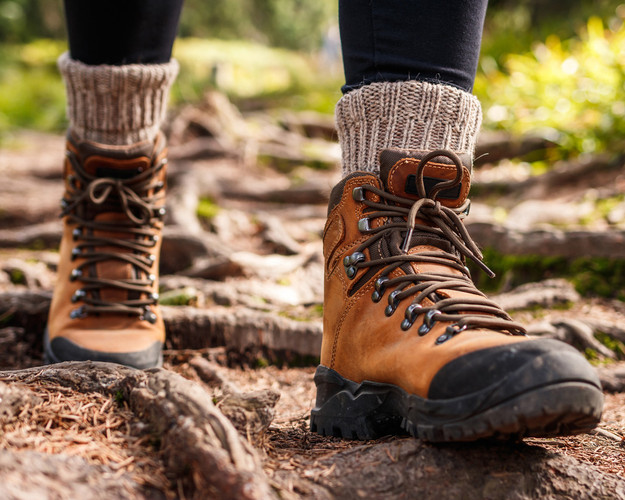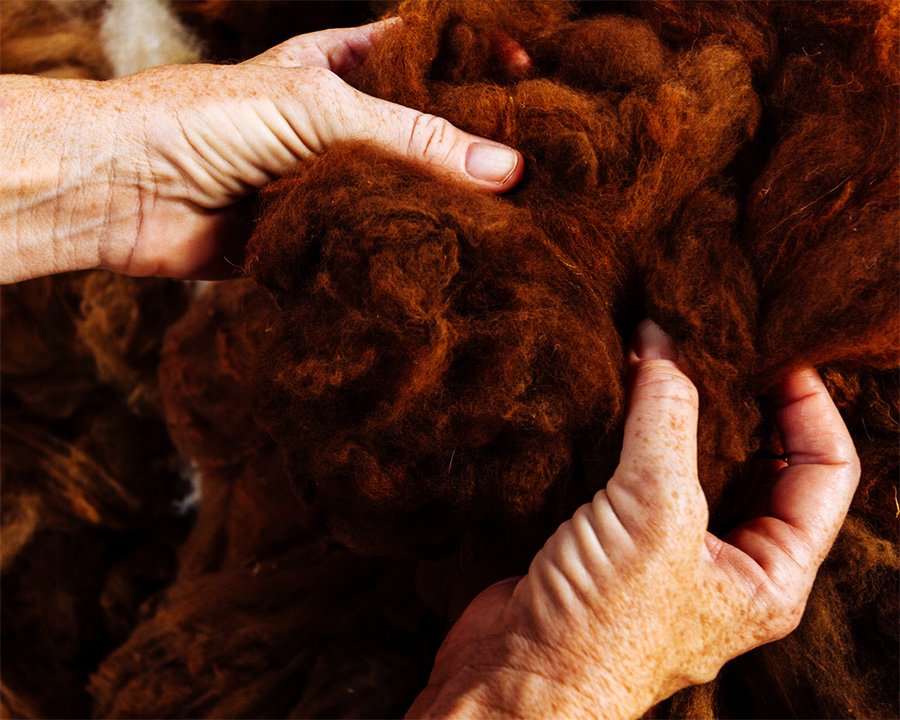Alpaca Socks vs. Wool Socks: The Ultimate Showdown
Posted by Warrior Alpaca Socks on 11th Jul 2023
Alpaca Socks vs. Wool Socks: The Ultimate Showdown
Introduction
Hello, fellow cold-footed friends! Let's be honest; there's nothing quite as disappointing as icy toes, especially on those frosty winter mornings. For years, my feet served as unwilling ice blocks, victims of the biting cold despite my earnest efforts to keep them warm. A pile of socks, mostly wool, promised salvation but rarely delivered. That is, until I discovered the magic of Warrior Alpaca Socks, a fantastic alternative in the alpaca socks versus wool socks debate. Skeptical? I don't blame you. But come along with me on this luxurious alpaca sock adventure - your toes might thank you.
The Wool Socks Era
History and Popularity
In the early 1900s, wool and cotton socks became the go-to textile in the US due to their affordability and mass production. To protect domestic textile plantations and stimulate the US GDP, large tariffs were imposed on alpaca fibers and competing materials from South America. Unfortunately, this kept alpaca fiber out of the market, leading to the widespread utilization of cotton and wool in the sock race.
Nevertheless, wool and cotton socks have stood the test of time, remaining a reliable and warm solution to cold weather for generations. Their popularity and history make them an important part of the wool socks era.
Comfort, Insulation, Durability, Maintenance, and Cost
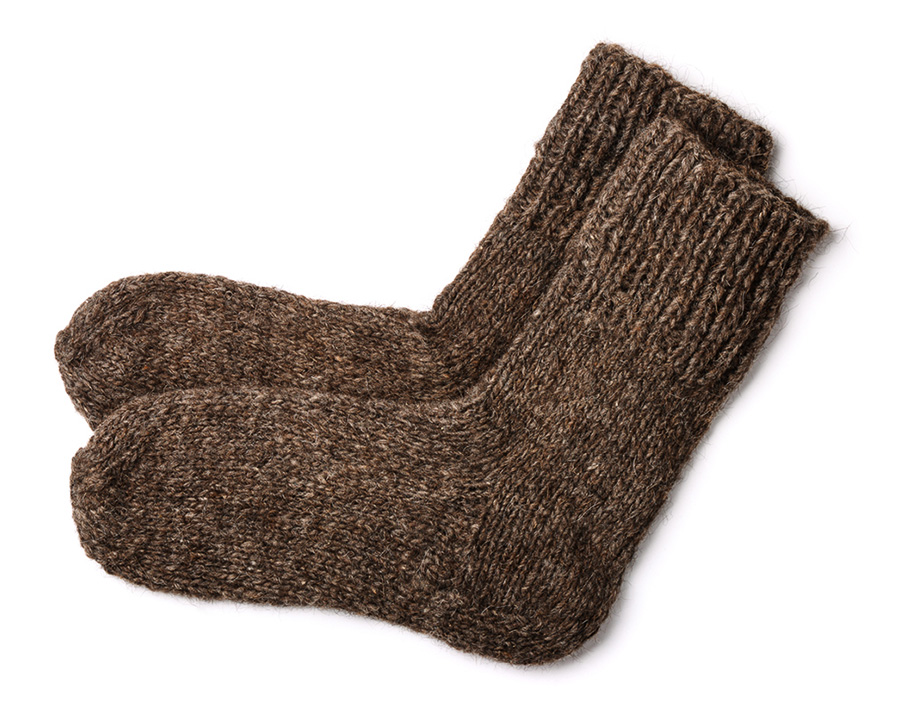
Wool socks are indeed comfortable - until they're not. You see, wool can be a tricky business. It offers lovely insulation, and in the beginning, it feels like a gentle hug to your feet. But then the itch starts. And trust me, nothing makes you want to rip off your socks faster and an itchy pair. So where does this "itch" come from?
First, wool fibers tend to be thicker in diameter and coarser than other types of fibers. This leads to the fiber structure, making them more irritating to our skin, especially for those with sensitive skin. Additionally, the outer layer of wool fibers contains microscopic scales that can create a prickle effect when in direct contact with the skin. This results in discomfort and itching. The natural crimp and elasticity of wool can also generate friction against the skin, leading to irritation.
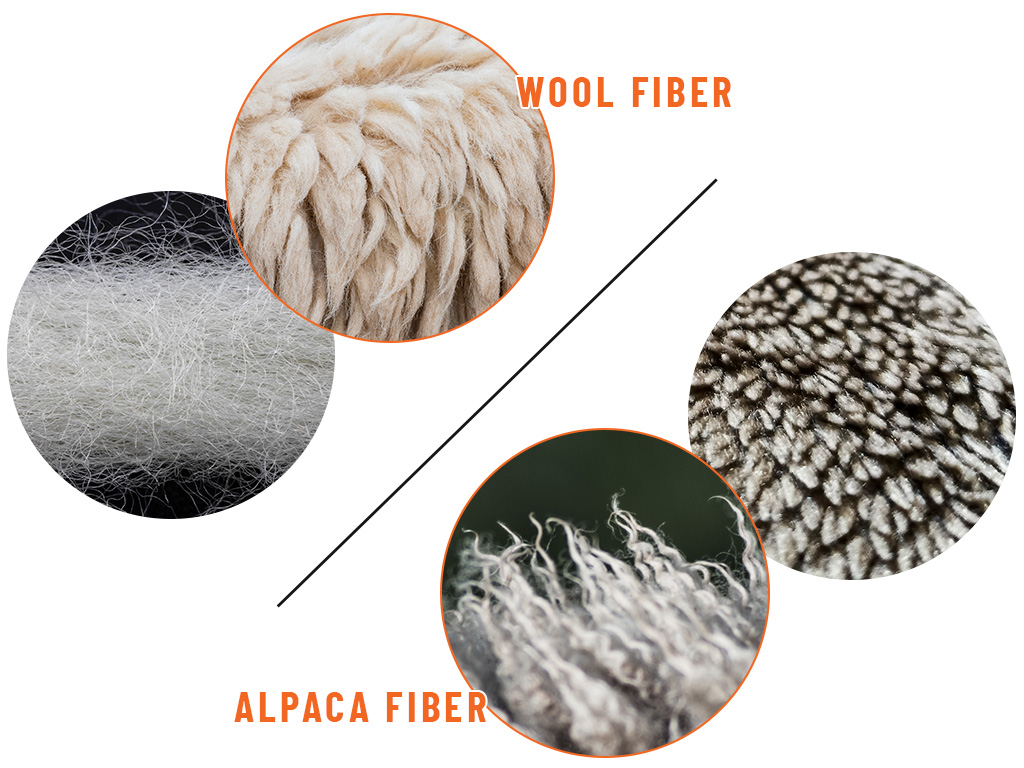
Furthermore, wool may cause allergic reactions in some individuals due to the presence of proteins like lanolin. Adding in the use of certain chemicals to process wool ( such as dyes and bleaches) can further contribute to skin irritation and itching. However, it's worth mentioning that not all wool is itchy. Fineness and species of wool make a huge difference. Merino wool, for example, is often less likely to cause itching compared to coarser varieties.
Now, about the cost. Contrary to popular belief, wool socks are not all that cheap anymore. The poor quality, highly-processed wools are but produce low-quality finished products. Good quality socks are commonly priced over $35 per pair by retailers.
All things considered, wool socks would not have existed for as long as they have if they weren't an effective blend of comfort, material, and cost. However, they come with strings attached - literally! To this end, one should ask themselves: is there a better sock option that provides comfort, softness, and durability at a better price? Let the search begin!

The Great Alpaca Revelation
Meet the Warrior Alpaca Socks
Cue my foot-comfort-changing discovery - Alpaca socks. A nurse friend of mine told me about these socks she was wearing for her 10-hour hospital shifts. Despite being on her feet for long hours and the near-freezing temperature it seems all hospital floors are kept at, she told me how these socks had totally stopped her feet aching come the end of her shift. Quite simply, she swore by them. The skeptical consumer in me raised an eyebrow, but my cold-footed soul decided to try some for myself.
The Alpaca Fiber Magic
Alpaca fiber, as it turns out, is like the golden fleece of the sock world. They are as soft as cashmere, warmer, lighter, and stronger than sheep's wool counterparts. Best part? No itch! It was like walking on clouds. And my friends, these socks are thermally superior. My feet, those eternal ice blocks, turned into cozy, toasty havens.
Comfort, Insulation, Durability, Maintenance, and Cost
The comfort level of your feet warm these alpaca socks is hard to put in words. It's like each sock is a little personal butler dedicated to your feet's comfort. Insulation? Top-notch. Even on the coldest days, my feet were warm and snug.
Durability was the real surprise. After several wears and washes, no signs of thinning or fading. Now, I will say fit is important here. If your shoes have too much empty space inside them, this can cause more foot sliding inside the shoe. This repetitive wearing can cause the socks to thin, just like it would for any other material.
They held up beautifully and they don't need any special washing instructions - a standard wash and dry safe.
About the cost, yes, they can be more expensive than your regular cotton socks - don't expect alpaca socks to come in a 6-pair value pack, but instead, this is a quality (and comfort) over quantity item.
Are Alpaca Socks Eco-Friendly?
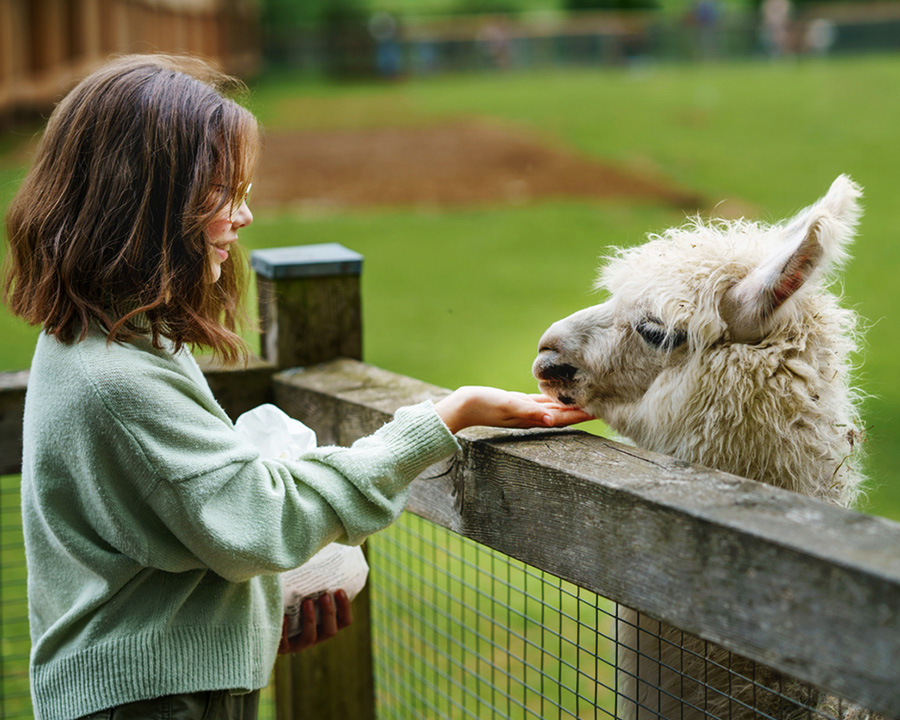
Yes, alpaca socks are eco-friendly. This is another noteworthy advantage of alpaca socks, particularly Warrior Alpaca Socks, is their eco-friendliness and commitment to sustainability. Alpaca farming has a lower environmental impact than most wool-producing animals. Alpacas are gentle grazers, which means they don't damage pastureland, and their soft padded feet cause less soil erosion compared to the hard hooves of other livestock.
Furthermore, alpaca fiber is naturally biodegradable and renewable. The production process is also relatively clean and uses less water compared to many other textile industries. Plus, no harsh chemicals are needed to process the fiber, unlike some treatments for wool.
The longevity of Alpaca socks, outlasting many of their counterparts, also contributes to their sustainability, as fewer resources are needed over time. All these factors make these socks a fantastic choice for those of us who not only value comfort and quality but are also mindful of our environment.
The Ultimate Showdown: Alpaca Socks vs. Wool Socks
I suppose a direct comparison is in order, isn't it? Here it goes:
- Comfort: Wool is comfortable but can itch. Alpaca is super comfortable and itch-free.
- Insulation: Both offer good insulation, but Alpaca has a significant thermal advantage.
- Durability: On average, wool socks can wear out quickly. Alpaca socks last longer given the same amount of wear.
- Maintenance: Wool requires careful washing and usually are not dryer safe. Alpaca is more user-friendly.
- Cost: Good merino wool socks aren't cheap. Some Alpaca sock styles may cost more upfront (especially the thicker pairs) but provide value over time.
In all aspects, Warrior Alpaca Socks outperformed traditional socks for me. It was like upgrading from a bicycle to a luxury car. They are a foot's best friend, especially for those who spend a lot of time on their feet.
The Warrior Alpaca Socks Experience
Wearing these socks is an experience. It's not just the warmth, the comfort, or the durability. It's the overall feeling of well-being that your feet experience. Making the switch to Alpaca socks was like discovering you've been using dial-up internet in a world where fiber-optic exists. It's a no-brainer once you've experienced the difference.
Conclusion
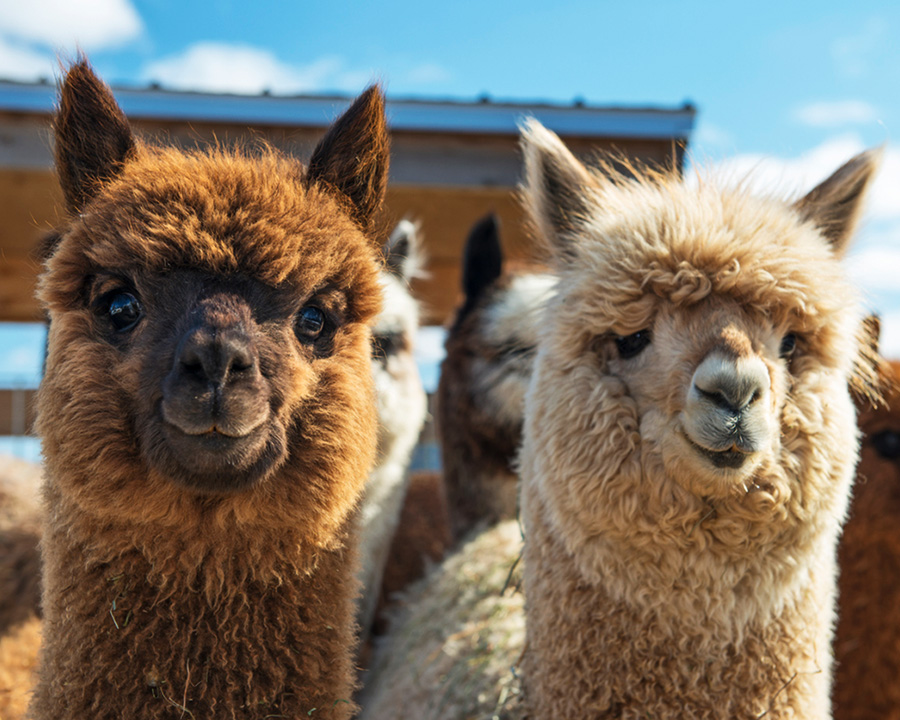
If you're a cold-footed soul searching for the ultimate foot comfort, take my word for it - give Warrior Alpaca Socks a try. The Alpaca vs. Wool showdown clearly has a winner, at least in my books. Yes, they're a bit more expensive, but your feet, like mine, might just dance a happy jig.
Here's to warm feet and warm air and the comfort we all deserve, especially us who are over 40 and wise enough to appreciate the finer things in life. Let's all say goodbye to the days of cold feet and itchy woes. Trust me, your feet will thank you.
For quick reference, here's a listing of the key features alpaca wool socks provide
- Superior Comfort: Alpaca socks provide a gentle, itch-free comfort that is unparalleled, making them perfect for daily wear.
- Impressive Insulation: With their unique thermal properties, alpaca socks provide your feet with extra warmth and greater thermal capacity - even in chilly weather, thanks to their hollow core fiber structure that absorbs your natural body temperature into its inner core.
- Exceptional Durability: Alpaca socks show less wear and tear over time, providing a durable option that offers value for money.
- Easy Maintenance: Unlike some other socks, alpaca socks don't need special washing instructions and are dryer safe, adding to their user-friendly appeal.
- Eco-Friendly & Sustainable: Alpaca socks are produced in an environmentally friendly manner, aligning with the values of the conscious consumer.
- Hypoallergenic: Alpaca fleece is a naturally hypoallergenic fiber, making these socks a great option for those with sensitive skin.
- Improved Foot Health: Alpaca socks are breathable and moisture-wicking, helping to keep your feet dry and preventing fungal infections. This helps prevent that dirty sock odor smell.
- Investment in Comfort: Though they may cost more upfront, the comfort, durability, and quality of alpaca socks make them a worthy investment for your foot comfort.
- Variety of Styles: With a range of styles, colors, and thicknesses, there's an alpaca sock to suit every need and personal preference.

